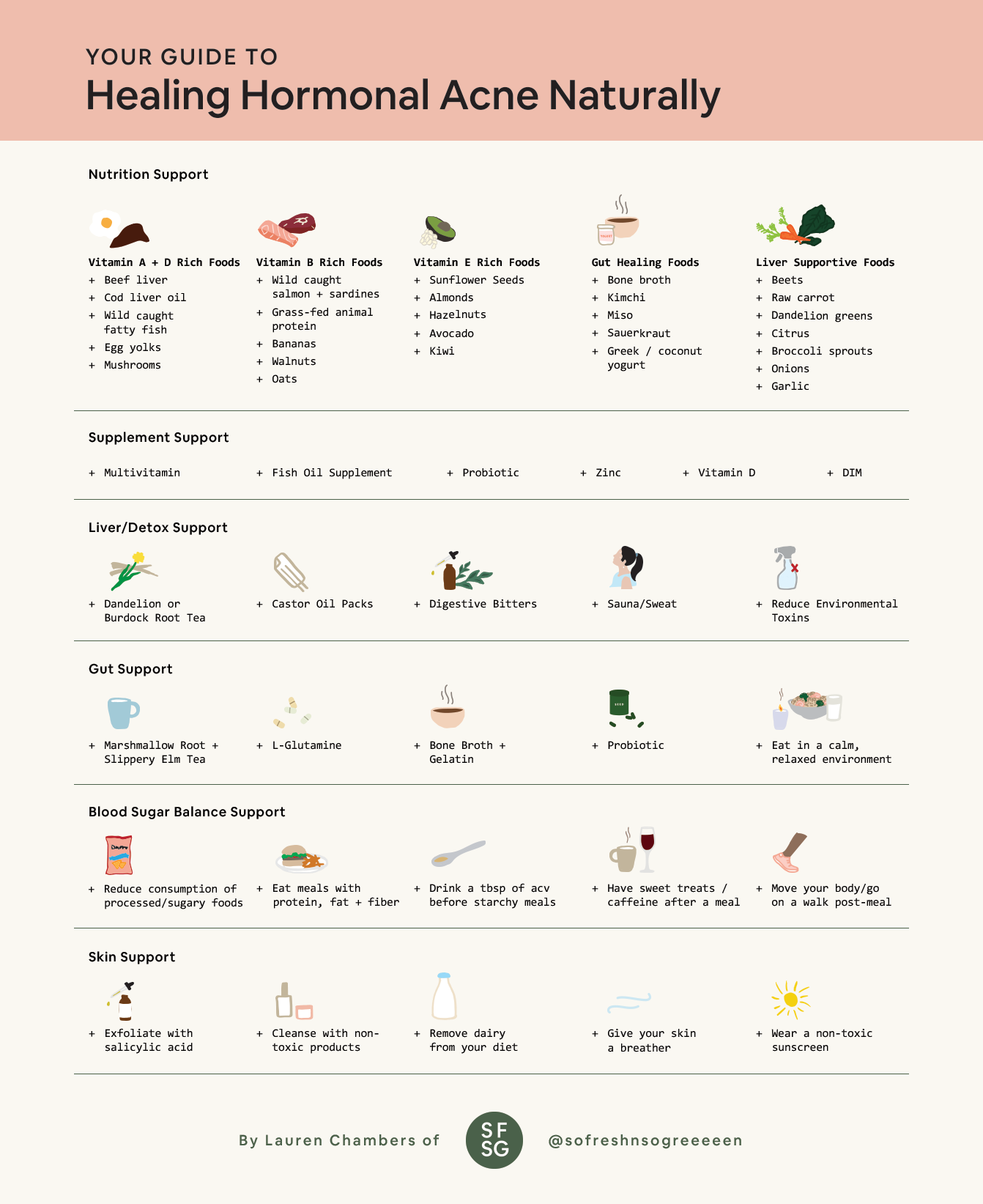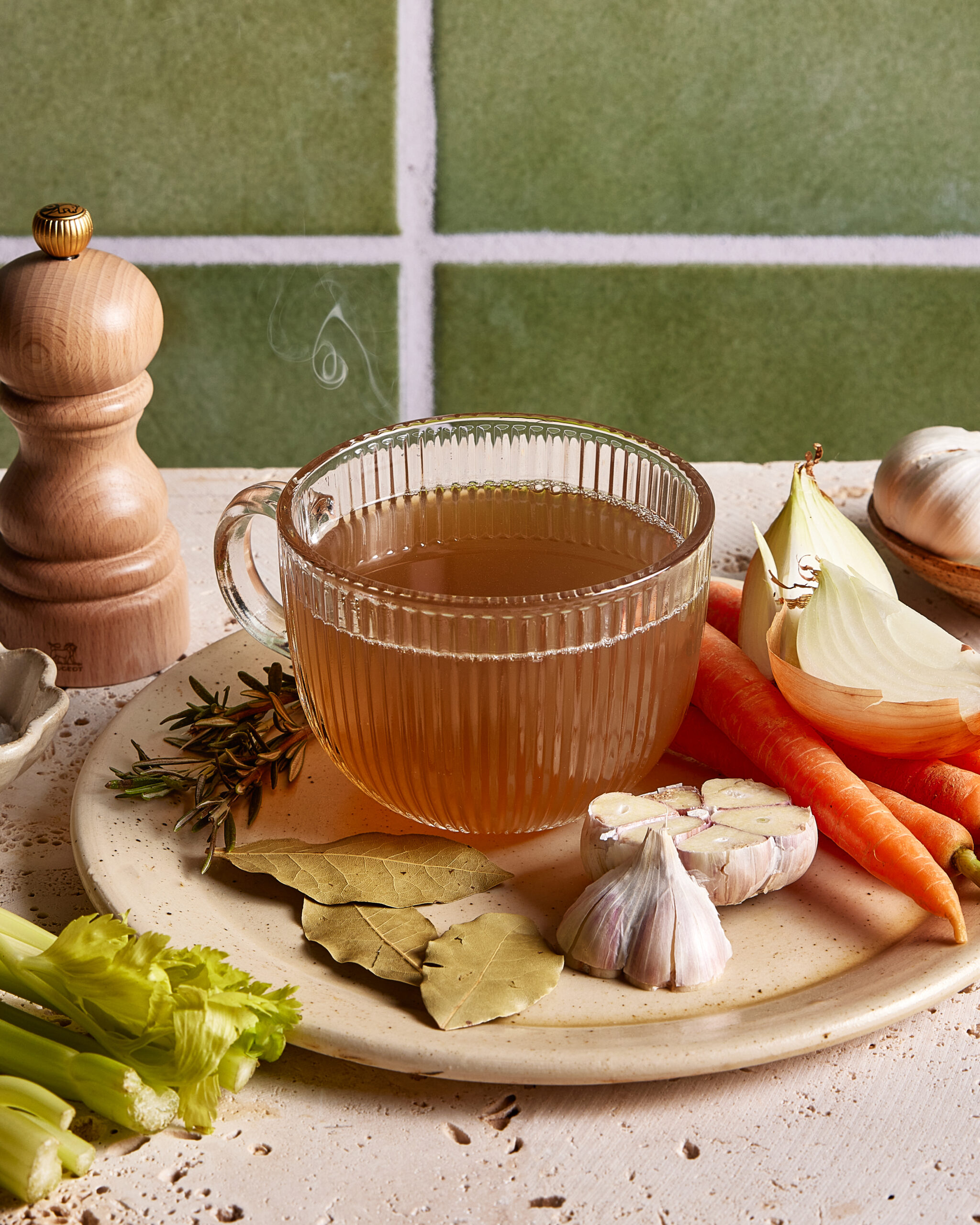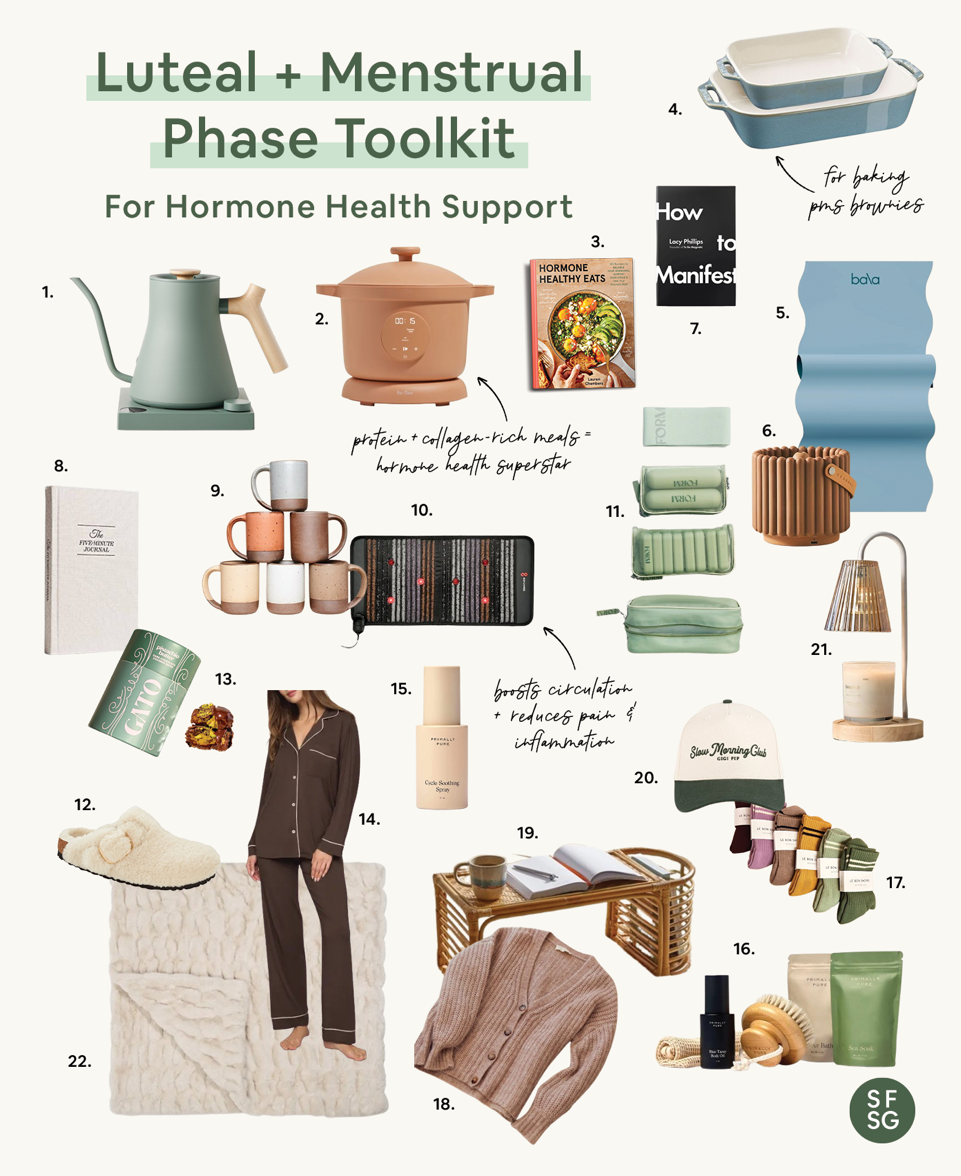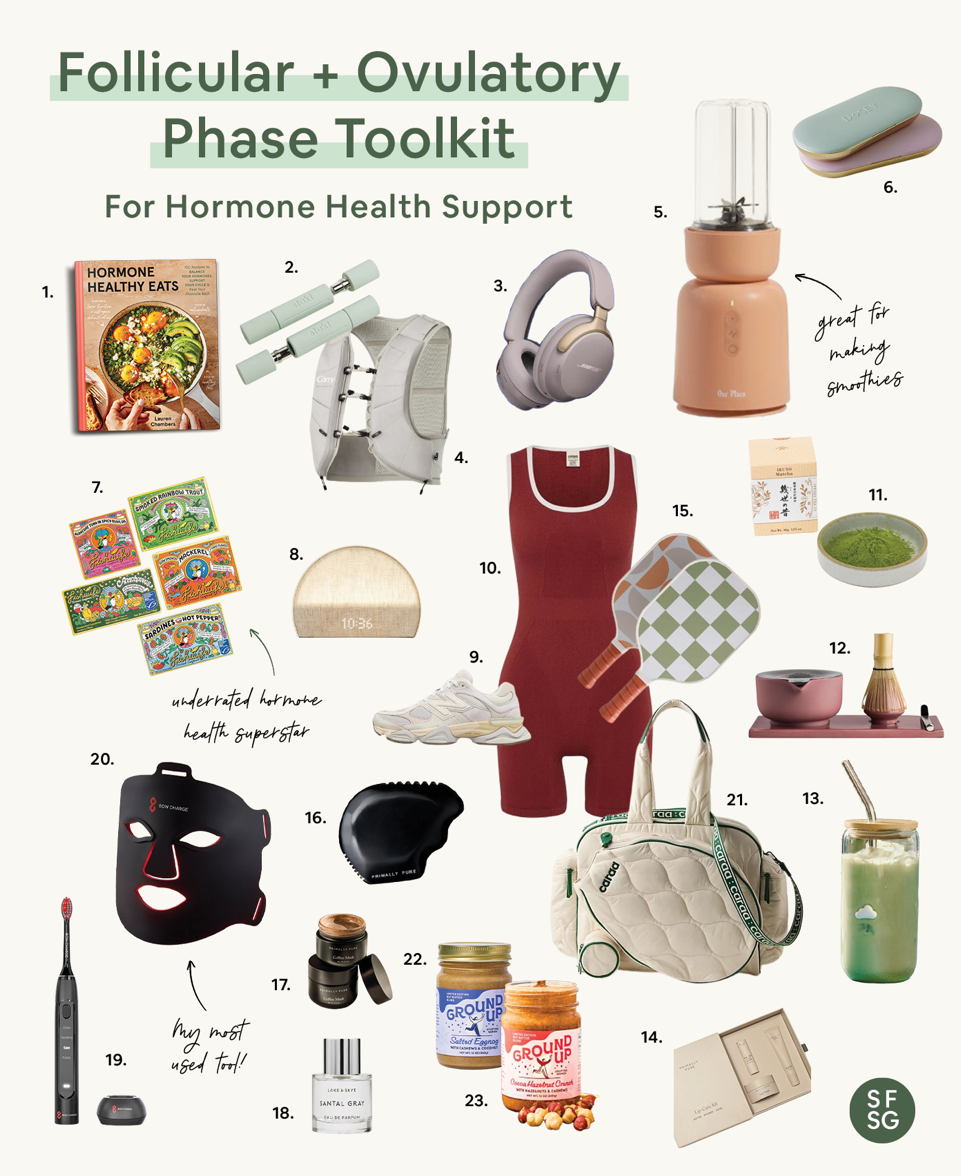recipes
lifestyle
wellness
motherhood
mindset
About
E-Books
Blog
Freebies
partnerships
hi, i'm lauren!
hey there!
I’m on a hot mission to help you balance your hormones & live your best life.
categories
Home
Quiz
Get In Touch
The Course
search:
Cookbook
Recipe key
GF
VG
P
Vegan
Gluten Free
Paleo
DF
Dairy-Free
download now
Join Hormone Healthy Eats!
Become a SFNSG insider to get my monthly Substack, Hormone Healthy Eats! Packed with the latest hormone-healthy recipes
+ tips.
jump to recipe >
MY PERSONAL HORMONAL ACNE JOURNEY
Hormonal acne is a common symptom associated with a variety of hormonal imbalances and conditions, and it’s often one of the most loathed.
Honestly, I can totally relate, as I dealt with my own hormonal acne in my latter twenties. I had been completely vegan for about six months, and while at first I felt absolutely amazing, I slowly began to develop nutrient deficiencies that lead to hormonal imbalances, primarily low-thyroid.
Unfortunately, I had absolutely no idea what was going on at the time, and when my hair started falling out, my periods became irregular and painful and I began experiencing embarrassing breakouts I freaked out, looking for any quick fix to help me deal, most of which just made my symptoms worse, including antibiotics that wrecked my gut and a Proactiv subscription that completely dried out my face.
I remember feeling SO self-conscious, praying that my skin would cooperate for a big event or social outing, sometimes canceling or holing up in my room instead because I didn’t want anyone to see me (I can also VIVIDLY remember a drunken night out where an ex pointed out all of the “covered up” zits on my face and I went home bawling). It makes me feel so sad to look back on, and truly no woman should have to go through that.
While following the foundations I teach in my digital course, The Hormone Balancing Blueprint, naturally remedied my acne at a root cause level, I wanted to offer all women out there struggling with hormonal acne additional tips to help you take a targeted approach in order to begin to boost your confidence and quality of life ASAP.
You can read below for root causes, triggers and how to begin healing your hormonal acne naturally today.
Looking for recipes + nutrition support to help heal hormonal acne from the inside out? Check out my go-to guide.
WHAT IS HORMONAL ACNE?
Hormonal acne is a symptom associated with a variety of hormonal fluctuations (including puberty, menstruation and menopause), imbalances and conditions.
During puberty, hormonal acne often appears in your T-zone (forehead, nose, chin).
During adult years, hormonal acne most often forms on on the lower part of your face (cheeks, jawline) and can present as blackheads, whiteheads, small pimples or cysts.
HORMONAL IMBALANCES THAT LEAD TO HORMONAL ACNE
The main hormonal imbalances and conditions thought to contribute to hormonal acne include:
+ Elevated Androgen Levels (Commonly Associated with PCOS)
This is a common hormonal imbalance where women experience increased androgen production (including male characteristic hormones such as testosterone) which leads to increased sebum production (aka more oil). The increase in oil clogs pores, often leading to acne.
This is also a primary reason why women getting off hormonal birth control often experience acne, due to what is referred to as an “androgen rebound” post birth control. Elevated androgen levels are also a key culprit of PCOS, which is why women with PCOS often experience acne as a symptom.
+ High Estrogen in Relation to Low Progesterone (also known as relative estrogen dominance)
Studies show progesterone has an inhibitory effect on a potent androgen called dihydrotestosterone, also known as DHT for short. However when estrogen is high in relation to progesterone, progesterone is less able to inhibit DHT, leading to more DHT activity in the skin, and acne as a result.
+ Menstrual Cycle Skin Changes
For a reason still yet to be determined, our pores narrow premenstrually, and this along with increased sebum production may further create an environment leading to zit formation, bacterial proliferation and surrounding inflammation during your luteal phase and leading up to your period.
ROOT CAUSES + TRIGGERS OF HORMONAL ACNE
The root cause triggers of these hormonal imbalances and conditions include:
+ Insulin Resistance/Disrupted Blood Sugar
Balanced blood sugar is key for hormone balance, and disrupted blood sugar is a trigger for hormonal acne, primarily because higher levels of circulating insulin and blood sugar lead the body to convert estrogen to increased amounts of testosterone, which equates to elevated androgen levels, increased sebum production, and acne as a result.
+ An Inflammatory Diet
While most dermatologists (including the one I saw when I encountered hormonal acne who prescribed me a super strong antibiotic that caused me severe stomach pains and completely decimated my gut microbiome) tend to state there’s no relation between acne and what you eat, this has been completely debunked in medical literature, and many dietary connections to acne have been scientifically studied and proven.
Low consumption of vegetables, fruits and omega-3 fatty acid rich fish are all associated with an increased risk of acne, as well as regular consumption of refined carbs, processed foods and soda.
+ Toxin Exposure
Endocrine disrupting chemicals disrupt our hormones, leading to imbalances that can trigger acne. Additionally, regular use of toxic skin and hair products may block follicles, leading to the slow development overtime. On top of that, just like our gut, our skin has its very own microbiome, influenced by both our outside and inside environment.
Conventional topical products may interfere with your naturally occurring skin microflora, throwing off your skin’s natural pH balance and leading to a proliferation of certain types of bacteria that are commonly found in sebum rich areas of the skin associated with acne.
+ Stress
Several medical studies have shown the correlation between stress and acne is very real, as elevated stress levels increase androgen production, as well as insulin resistance and inflammation. This is a double edged sword, as having acne is also seriously stressful for women, creating a vicious cycle.
HOW TO HEAL HORMONAL ACNE NATURALLY
While I think most of us can agree hormonal acne is one of the most frustrating symptoms to deal with, the good news is that we can heal it naturally through simple nutrition and lifestyle shifts. The tips below have been scientifically studied to be the most impactful at healing hormonal acne from the inside out.
NUTRITION TIPS TO HELP HEAL HORMONAL ACNE
+ Eat A Wide Variety of Nutrient Dense Foods
This ensures you’re consuming plenty of food sources rich in nutrients such as selenium, vitamins A, B, D, and E, and omega-3 fatty acids, as deficiencies in these nutrients are all associated with acne and acne severity.
One of the best ways to do this is to align more of your eating habits with your menstrual cycle, as you’re constantly rotating in a wide variety of foods, ensuring you’re consuming all of the vitamins and minerals needed for optimal hormone function, and at much less risk to develop a deficiency that could lead to a hormone imbalance, and acne as a result.
+ Eat To Balance Blood Sugar
Because disrupted blood sugar is one of the main root causes of hormonal acne (as well as PCOS) eating in a way that supports optimal blood sugar balance also works to help heal imbalances and conditions associated with breakouts.
Some simple foundations include eating meals and snacks that contain a source of high quality protein, fat and fiber, eating a savory breakfast (instead of sweet), having sweets, caffeine or sugary beverages after a meal (instead of on its own), reducing consumption of processed foods and taking a tablespoon of apple cider vinegar 10 minutes before starchy or sugary meals.
+ Up Your Vitamin A Intake
Vitamin A plays an especially important role in skin health (which is why you may notice some of the strongest and most effective skincare treatments are derived from Vitamin A). The two forms of vitamin A available in the diet are preformed vitamin A (found only in animal sources, such as fish, eggs and meat) and provitamin A carotenoids, or beta carotene, found in sweet potatoes, carrots, squash, cantaloupe, apricots, spinach and broccoli. Along with rotating these foods into your meals based on where you’re at in your cycle, you may way to add them in more frequently while working to heal acne.
+ Reduce Consumption of Processed Foods, Refined Carbs + Sugar
As you now know these both disrupt blood sugar and increase inflammation, root causes of acne, so avoiding them when possible is key to improving skin health.
+ Temporarily Remove Dairy From Your Diet
Dairy products may contribute to acne, likely due to growth factors and hormones inherent in dairy products, as well as insulin triggering effects of dairy consumption. One meta-analysis found an especially strong connection to dairy and milk consumption, including milk, whole milk, low-fat and skim milk. If you’re dealing with acne that’s negatively impacting your quality of life, I encourage cutting out dairy altogether until symptoms improve.
SUPPLEMENTS TO HELP HEAL HORMONAL ACNE
+ MULTIVITAMIN
Ideally you’ll be getting all of the skin nutrients you need from your diet, however sometimes we need to bridge the gap between our diets and what’s optimal, and that’s where taking a multivitamin daily can be helpful for prevention and treatment. I like this brand.
+ FISH OIL SUPPLEMENT
Both low omega 3 intake and a high omega 6 to omega 3 ratio is associated with hormonal acne and inflammation. Along with ensuring you’re not consuming inflammatory vegetable oils loaded with omega-6’s, you want to make sure you’re eating omega-3 rich food sources such as salmon, sardines and eggs often. If not, you’ll want to add in an omega 3 fish oil supplement, I love this brand.
+ PROBIOTIC
Gut health is intricately linked to hormonal health, and optimal gut diversity is especially key to healing symptoms like hormonal acne (certain strains have been proven to help). While I like to focus on diet first, a high quality probiotic can be particularly helpful. I personally use and recommend this brand, and you can use my code SOFRESH15 to save.
+ ZINC
There are many studies showing zinc to be beneficial in helping to treat hormonal acne, both by decreasing inflammation and increasing collagen synthesis.
+ VITAMIN D
Vitamin D deficiencies are associated with acne, so if you’re not regularly getting exposure to sunlight (which can be tough based on where you live and seasons) I recommend looking into a vitamin D supplement. That being said, please get your blood levels checked first to determine appropriate dosage, as high levels can be toxic.
+ DIM
Diindolylmethane (aka DIM) a derivitive of cruciferous vegetables, is not only wonderful for liver support (helping the body to naturally detoxify) but it has been shown to block androgen receptors, such as testosterone, from getting into the receptor, which you now know can instigate acne. Per usual, I like to focus on eating a diet rich in DIM via cruciferous veggies like kale, cauliflower, cabbage, brussels sprouts, arugula, etc. but if you need additional supplementation support I like this brand.
LIFESTYLE TIPS TO HELP HEAL HORMONAL ACNE
Along with eating a nutrient-dense, anti-inflammatory diet and incorporating supplements when needed, there are simple lifestyle shifts you can make that will have a profound impact on your hormones, working to naturally heal hormonal acne as a result. Below are scientifically studied habits you can adopt today.
+ SUPPORT YOUR LIVER/DETOXIFICATION PATHWAYS
Your liver (your master detoxifier) along with your pathways of elimination (skin, lungs, kidneys, colon and lymphatic system) work hard to remove any excess hormones that could lead to an acne triggering hormonal imbalance. Thus supporting these pathways by adding in liver supportive foods and herbs (see chart above) as well as regularly sweating and reducing daily exposure to toxins will go a long way in helping you clear up breakouts for good.
+ BOOST GUT HEALTH
GI symptoms (including bloat and constipation) are 37% more likely for those with acne, as your gut health is central to hormone balance, and when disrupted no longer performs its hormone-regulating functions properly, leading to many symptoms, including acne as a result. Incorporating gut healing foods (see chart above) and supplements such as a high quality probiotic, as well as eating in a calm, relaxed environment (to help you properly absorb the nutrients from those foods) are all effective habits to boost gut health and naturally reduce breakouts.
+ BALANCE BLOOD SUGAR
I may sound like a broken record but balanced blood sugar is a non-negotiable when it comes to healing hormonal imbalances and conditions directly associated with hormonal acne. Along with adopting the eating and nutrition principles mentioned above, moving your body or going on a walk 20-minutes post-meal as well as practicing good sleep hygiene and working to mitigate stress (see below) will all help to keep blood sugar more stable.
+ REDUCE STRESS
Elevated stress levels increase androgen production, as well as insulin resistance (disrupted blood sugar) and inflammation, so working to weed out stressors (toxic relationships, watching the news, stacking your schedule, taking on too much, etc.) in your life as well as increase your stress resilience (meditation, walks, deep breathing, therapy, daily movement, quality relationships, etc.) will not only help you feel better mentally but physically (as in, buh bye breakouts).
SKIN PRODUCTS + TARGETED TIPS TO HELP HEAL HORMONAL ACNE
Along with the nutrition and lifestyle tips mentioned above, there are specific skin related tactics and products you can incorporate into your routine to accelerate hormonal acne healing. These include:
+ Exfoliate with Salicylic Acid
Salicylic acid works by dissolving acne-causing blockages of dead skin cells and oil, as well as reduces the amount of oil being produced by your glands. There are a ton of options on the market (that also happen to contain hormone disruptive chemicals) so make sure you opt for a high quality, non-toxic brand. This is my fave and you can use code SOFRESHNSOGREEEEEN to save 20%.
+ Cleanse with non-toxic products at the end of each day
This works to clear pores of debris that can otherwise lead to dirt and sebum oil buildup, increasing the chances of a breakout. This non-toxic brand is my absolute fave (use code SOFRESH10 to save $) and I especially recommend their clarifying line if dealing with excess oil or cystic breakouts that often accompany PCOS or post-birth-control withdrawal.
+ Give your skin a breather
Going makeup free allows more oxygen to be delivered to your face, speeding up skin repair and regeneration of elastin and collagen. Of course this is easier said than done, especially if you’re self conscious about covering up existing acne. Do the best you can, leaving makeup off when you’re home or in an environment where you feel comfortable and less self-conscious.
+ Wear a non-toxic high quality sunscreen
While it’s important to give your skin a breather, you do want to wear a non-toxic, high quality sunscreen as UV light can be a trigger for acne flare. I love and use this brand for my face and this for my body.
+ Look into a topical retinoid and azelaic and benzoyl peroxide
While I’m all about a natural approach, if you’re not seeing any improvement and severe hormonal acne is taking a toll on your quality of life, other treatments, such as topical retinoids and azelaic and benzoyl peroxide, are safe topical options that can make a positive difference. Make sure to discuss with your holistic medical practitioner before taking.
BOTTOMLINE
Hormonal acne is a direct symptom of a hormonal fluctuation, imbalance or condition. Thus working to support your hormones through holistic nutrition and lifestyle shifts will help to naturally heal hormonal acne as a result.
Additionally, if you are struggling with hormonal acne I encourage working with a functional medicine practitioner that specializes in a holistic acne approach (aka hormones, gut health, skin health, etc.) to further help you on your healing journey. It’s important to note I am NOT a doctor and all major changes should be discussed with a licensed medical practitioner (especially if you are currently pregnant or have other pre-existing medical conditions).
When in doubt, please remember hormonal acne is not your destiny, and can be significantly reduced through nutrition and lifestyle habits that resonate and work best with your unique preferences, health status and needs.
MORE RESOURCES TO HELP HEAL HORMONAL ACNE NATURALLY
+ How To Naturally Balance Your Hormones After Birth Control
+ A Guide To Balancing PCOS Hormones Naturally
+ Hormone Balancing Foods To Eat For Each Phase of Your Menstrual Cycle
This post contains affiliate links. We may receive a small commission for purchases made through these links. Thank you for your support!

If you loved that...

01.

02.

03.

04.

05.
hey!
Keep Browsing
Site
Keep Browsing
Site
the
about
e-books
blog
downloads
quiz
Welcome friend, I'm lauren.
I’m honored to support you on your journey to optimal hormone health + happiness. Thanks for being here babe.


